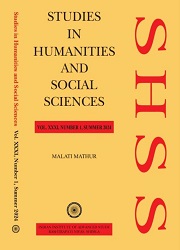Moral Basis of Linguistic Standard in Patañjali’s Mahabhasya
Keywords:
Human Values, Aryavarta, DharmaAbstract
This paper explores the moral foundations of linguistic standards as elucidated in Patañjali’s Mahabhasya, examining how ethical considerations intertwine with grammatical correctness. Patañjali’s conception of sista (the cultured or learned speaker) serves as a normative model, reinforcing the idea that linguistic propriety is deeply connected to moral and social discipline. The study critically evaluates whether the values embedded in the Mahabhasya are universal and eternal, questioning the assumption that all residents of 'Aryavarta exemplified the highest virtues associated with sista speakers. By contextualizing Patañjali’s linguistic philosophy within broader ethical frameworks, the paper highlights the interplay between grammar, morality, and cultural hierarchy. Furthermore, it reassesses the applicability of these linguistic values in a contemporary setting, probing whether they can be reinterpreted beyond their ancient sociocultural context. The analysis also considers the implications of Manu’s legal thought in shaping moral-linguistic norms, albeit with a critical perspective on its historical reception. Through a detailed study of Sanskrit textual sources with precise translations, this paper offers an enriched understanding of how Patañjali’s grammatical discourse is not merely technical but also a reflection of ethical and societal ideals.



